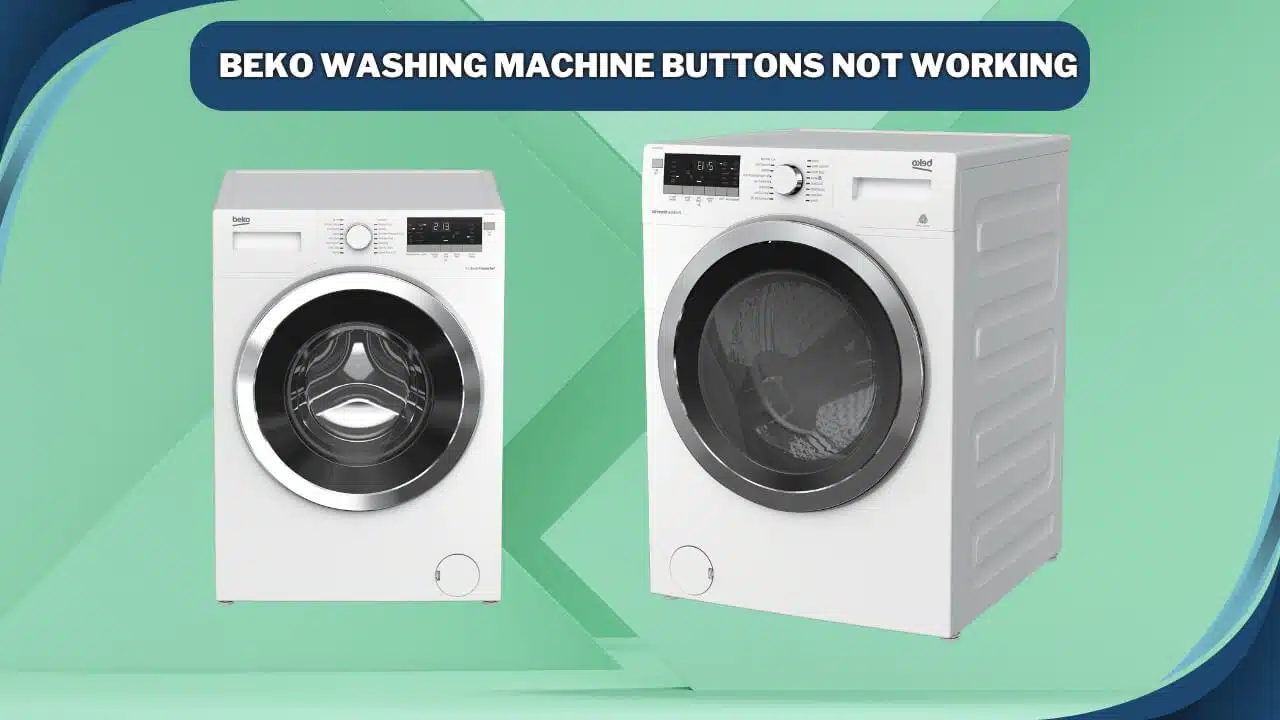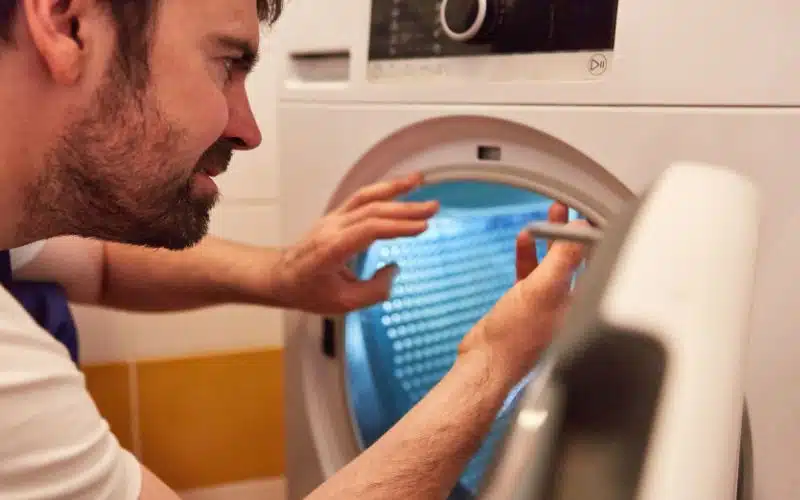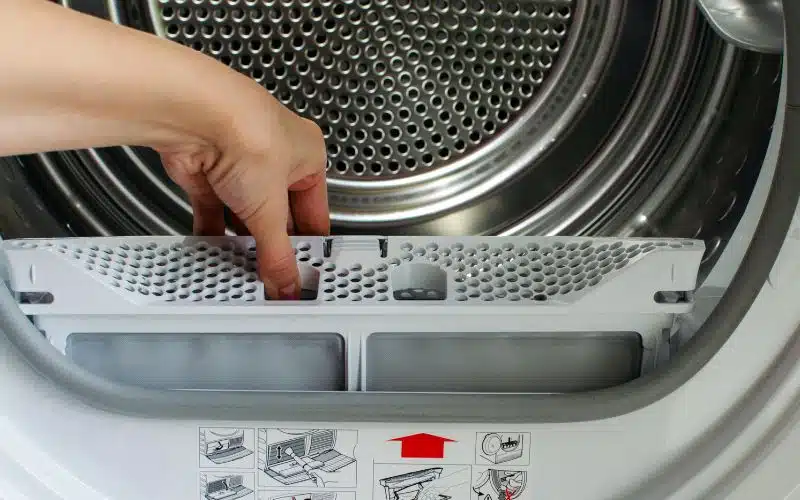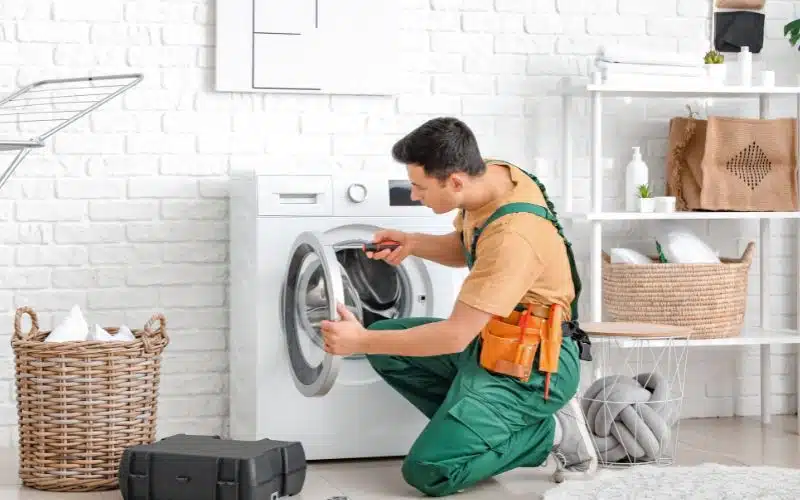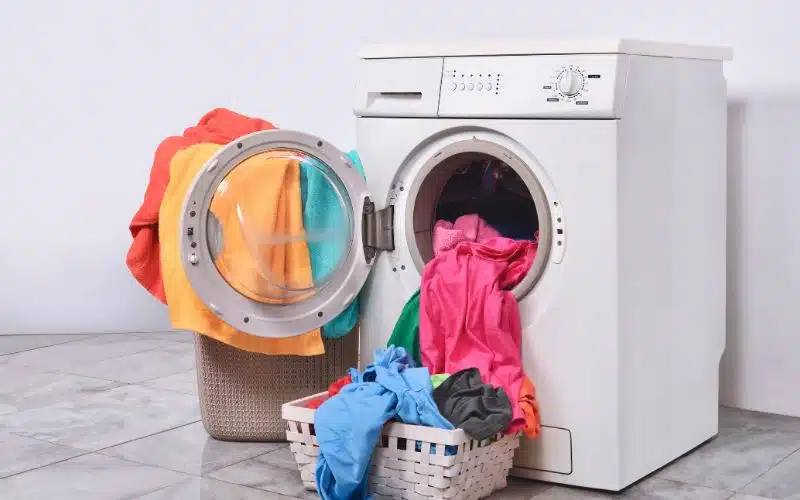Power surges can be sneaky villains, disrupting our homes in ways we often don’t see coming. Picture this: one moment, your washing machine is working fine, spinning your clothes clean.
Then suddenly, a power surge strikes! Just like that, your trusty machine could be out of action.
In this article, we’ll dive into how power surges can turn washing machines from helpful to helpless, and what you can do about it.
Let’s uncover the mystery behind these electrical surges and learn how to protect our handy home appliances.
Protect Your Washing Machine from Power Surges: Essential Tips
- Power surges can hurt washing machines. They can break circuit boards, fry circuits, and melt wires.
- Lightning, damaged power lines, and big appliances turning on and off cause surges. To keep your washer safe, use a surge protector. You can get one for just your washer or for your whole house.
- An electrician can install a whole-home protector. Surge protectors help avoid costly repairs and keep your appliances safe, even when you’re away.
- When choosing a surge protector, look at its rating, clamping voltage, and warranty. This helps you pick the best one for your washing machine.
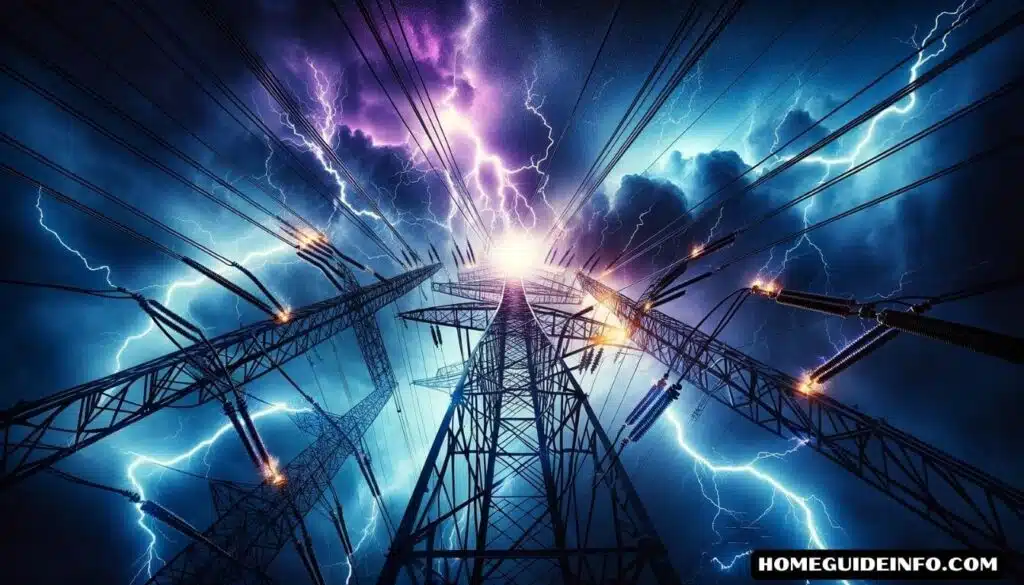
Understanding Power Surges and Their Impact on Washing Machines
A power surge is a big wave of electricity that can harm devices like your washing machine.
Here’s why this can be a problem for your washing machine:
- Circuit Board Damage: Power surges can overload your washer’s main control, the circuit board, causing it to break or burn.
Damage Caused by Power Surges:
- Frying of circuits
- Melting of wires and components
- Permanent damage to the machine’s controls
Danger of High Voltage:
- When voltage leaps up, it can be too much for your washing machine.
- Things can get so hot that they melt inside your washer.
Protect your washing machine by using a surge protector. It acts like a shield against power surges.
Remember, power surges can come from lightning or problems with the power lines. Keep an eye on your electronics during storms or sudden power losses. It can help save your washing machine’s life.
Common Causes of Power Surges
Power surges can come from outside, like lightning, or from inside your home, like when appliances switch on and off.
Here’s a quick look at common sources:
- External Causes:
- Lightning strikes which can send a high amount of electricity through the wires.
- Damage to power lines from construction work or weather can disrupt the normal flow of electricity.
- Changes in electricity use by the utility company can create surges.
- Internal Causes:
- High-power devices like air conditioners starting or shutting down.
- Faulty wiring can lead to unpredictable surges.
- Overloading circuits by plugging in too many devices might cause a surge.
Electrical Overloads:
Plugging too many things into one outlet can cause power surges by overheating the wires.
Here’s what can happen to your appliances:
- Short-term effects: A big surge can break your appliance instantly.
- Long-term effects: Small, frequent surges may slowly damage your appliance over time.
Remember to protect your appliances like your washing machine by using surge protectors. They help keep your appliances safe from sudden spikes in electricity.
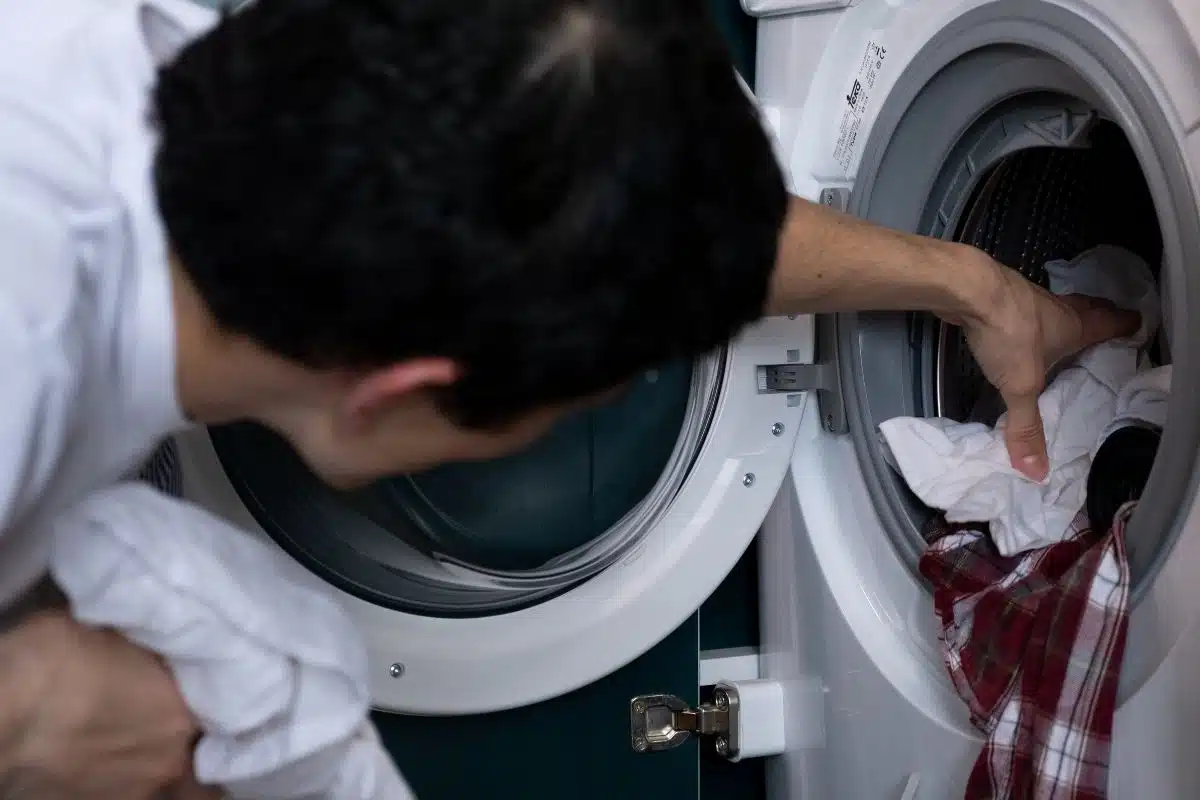
Prevention: Power Surge Protectors for Washing Machines
Power surges from storms or utilities can damage your washing machine. Use a surge protector to prevent this damage.
There are two common types of surge protectors. One is a plug-in protector, easy to use and move.
You just plug your washer into it. The other is a whole-home protector, which your electrician installs. It protects all your home’s appliances.
Why Use a Surge Protector?
- Stops Damage: Surge protectors keep power surges from harming your washer.
- Saves Money: You won’t need to spend cash on repairs or buying a new washer.
- Peace of Mind: Even when you’re not home, your washer is protected.
Last update on 2024-01-07 / Affiliate links / Images from Amazon Product Advertising API
Choosing the Right Surge Protector
| Plug-in Protectors | Whole-Home Protectors |
|---|---|
| Portable & user-friendly | Installed by a professional |
| For one appliance | Covers your entire home |
| Lower upfront cost | Higher upfront cost, long-term savings |
Last update on 2024-01-07 / Affiliate links / Images from Amazon Product Advertising API
Last update on 2024-01-07 / Affiliate links / Images from Amazon Product Advertising API
Make sure your surge protector has the correct rating. More joules mean better protection.
Look for one with a clamping voltage. This tells you how much voltage triggers the protector. A lower clamping voltage means protection starts sooner.
Remember to check the warranty. Some companies will pay for any damage if the protector fails. Your washing machine is a big investment. It’s smart to protect it with the right surge protector.
Dealing with the Aftermath of a Power Surge
When you’re faced with a power surge, it can be challenging to know what to do next for your appliances, like your washing machine. Here’s what you can do:
Steps to reset a washing machine after a power outage:
- Unplug the Machine: Start by unplugging your washing machine from the electrical outlet to make sure it’s safe.
- Wait for a While: Give it a few minutes. Sometimes, this allows the appliance to reset itself.
- Check the Control Panel: After waiting, plug the washer back in. If it’s not working, you might need to check the control panel or fuses.
Deciding between repairing and replacing damaged appliances:
| Factor | Repair | Replace |
|---|---|---|
| Age | If the washing machine is newer, it may just need a simple fix. | Older models might be better replaced than repaired. |
| Cost | Compare the repair cost to the appliance’s value. If it’s low, repair it. | If it’s more than half the washing machine’s current value, consider replacing. |
| Extent of Damage | Minor damage often warrants a repair. | Severe or widespread damage usually means replacement is the best option. |
Remember, if you’re unsure about handling electrical appliances, it’s wise to contact a professional.
A licensed electrician or appliance repair technician can help you assess the situation and make the safest choice.
If you need to assess damage to your washer after a power surge and need help with deciding who’s responsible for the damage, check out this ConsumerAffairs article.
Insurance and Warranty Considerations
When your washing machine faces power surge damage, you might wonder if you’re covered.
Many homeowners insurance policies cover damage caused by power surges, especially if the cause is a covered peril like lightning.
However, the coverage can vary, so you should check your policy. Here’s what you need to know:
Insurance Policy Options:
- Covered Perils: If a power surge is due to something like lightning, your policy may cover it.
- Equipment Breakdown Coverage: This is an add-on that could help if your washer gets zapped.
Warranty Limitations:
- Standard Warranty: Most warranties don’t protect against power surges.
- Extended Warranty: Sometimes, an extended warranty might offer surge protection, but it’s not guaranteed.
Here’s how to understand your coverage better:
Insurance Coverage:
- Check your policy: You need to read your policy or speak to your agent.
- Document everything: After damage, take photos and list all affected items.
Warranty Coverage:
- Know what you have: Review the warranty details for your washer.
- Keep receipts and records: They may be required for a warranty claim.
Remember, prevention is key. You may want to invest in a surge protector. It’s a small cost for saving your appliances from future power surges.


